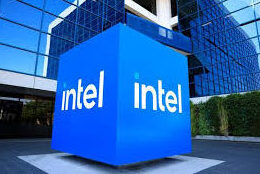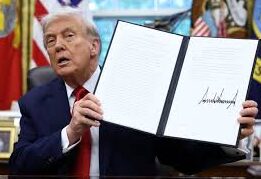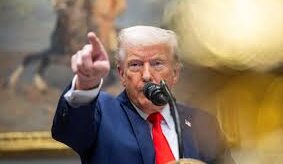Intel shares jumped more than 7% on Thursday following reports that the Trump administration is in talks to acquire a stake in the U.S. semiconductor giant.
According to Bloomberg, the potential deal would support the tech company’s plans to build a major manufacturing hub in Ohio. The size of the possible stake remains unclear.
White House spokesperson Kush Desai said, “Discussions about hypothetical deals should be considered speculative until there is an official announcement from the administration.”
The news comes just days after a meeting between Intel CEO Lip-Bu Tan and U.S. President Donald Trump, who previously accused Mr. Tan of being “highly conflicted” due to his past ties with China.
The BBC has reached out to Intel for comment.
A company spokesperson declined to discuss the negotiations but said Intel is “committed to supporting President Trump’s efforts to strengthen U.S. technology and manufacturing leadership.”
Bloomberg reported that talks are still ongoing regarding the stake and its valuation.
David Nicholson, a tech analyst at market research firm The Futurum Group, said the reported move would be a “lifeline” for Intel, providing both funding and government backing.
The Silicon Valley chipmaker has struggled in recent years, falling behind in the artificial intelligence (AI) chip race while rival Nvidia surged ahead. Intel’s market value has dropped to less than half of its 2020 peak, now standing at $104 billion.
Nicholson told the BBC that such a deal would highlight the “deep interconnection” between public and private sectors in the U.S., similar to what is seen in countries like China.
Earlier this week, chip companies Nvidia and AMD agreed to pay a 15% tariff on Chinese imports, another example of the Trump administration’s direct intervention in the private sector.
“Some people will see this as unfair favoritism toward Intel, but most will agree it is strategically vital for the United States,” Nicholson said.
Intel’s planned Ohio semiconductor plant is reportedly a key part of its negotiations with Washington. The facility was intended to be the world’s largest chip manufacturing site but has faced multiple delays.
Tech analyst Austin Lyons noted that while it is unusual for the U.S. government to directly back a single company, Intel may be a “special case” due to the high stakes for America’s chip-making competitiveness.
Lyons explained that Intel represents the best U.S. chance to compete with global semiconductor leaders such as TSMC and Samsung, and the Ohio plant would help ensure the country can produce advanced semiconductors domestically.
Lip-Bu Tan, a U.S. venture capitalist who became Intel CEO in March, has focused on stabilizing the company’s finances and catching up in the rapidly growing AI chip industry.
Last week, Trump publicly called for Tan’s resignation on social media, apparently referencing his alleged investments in companies linked to China’s military, according to U.S. officials.






